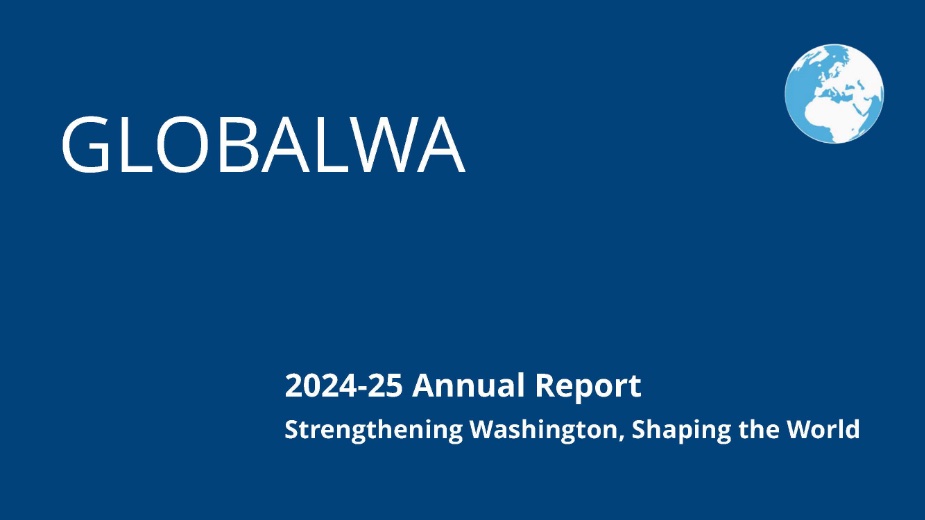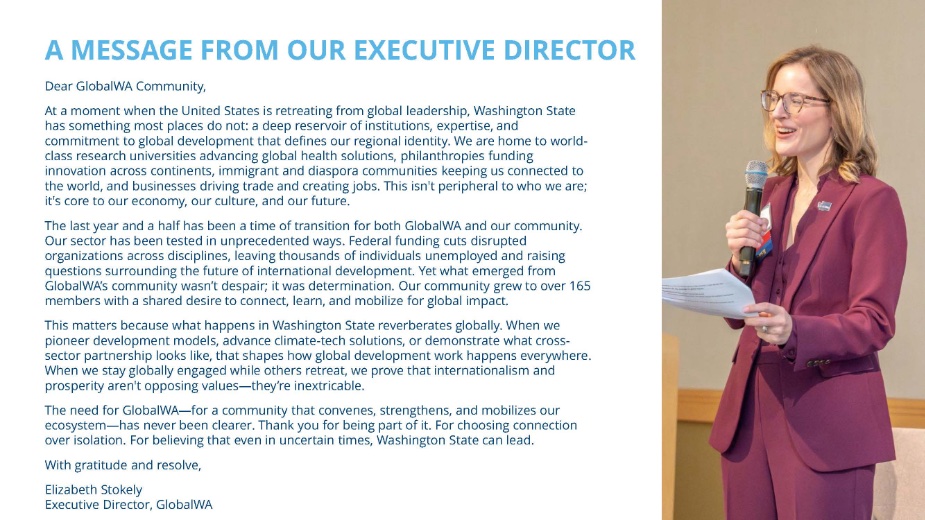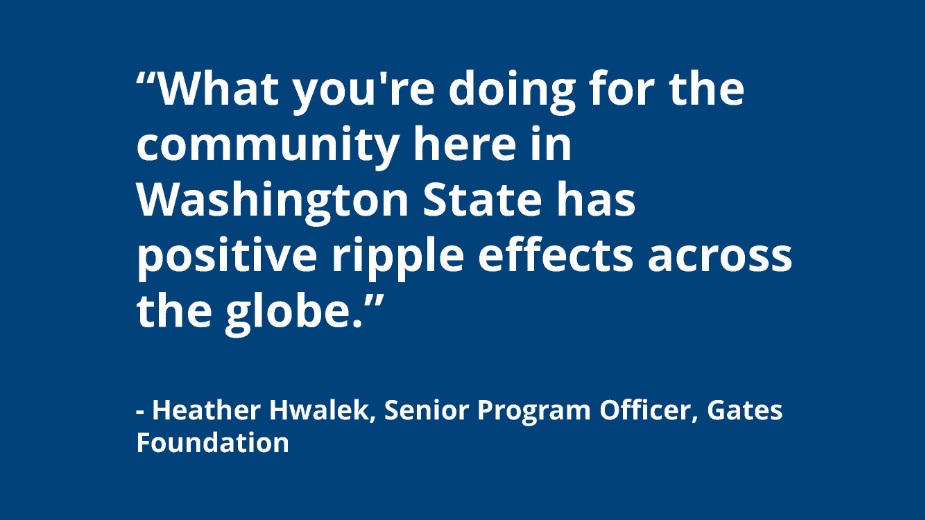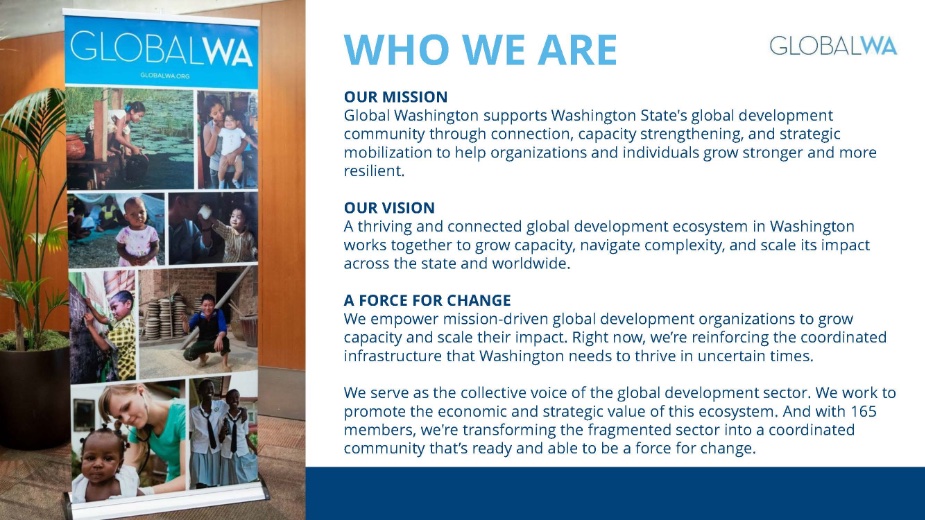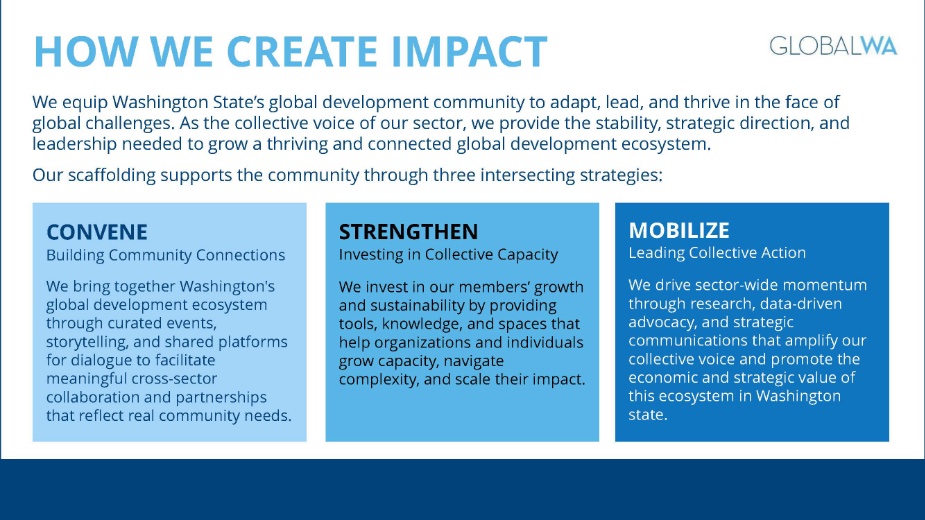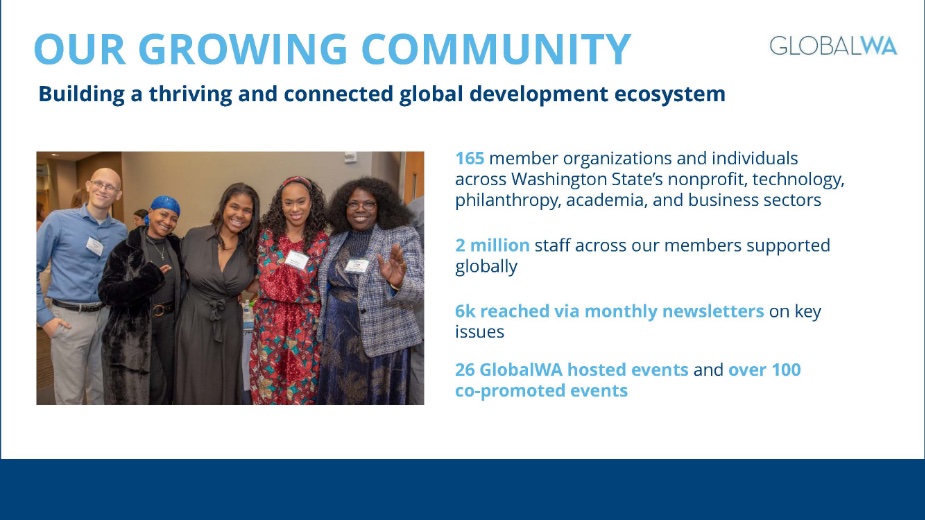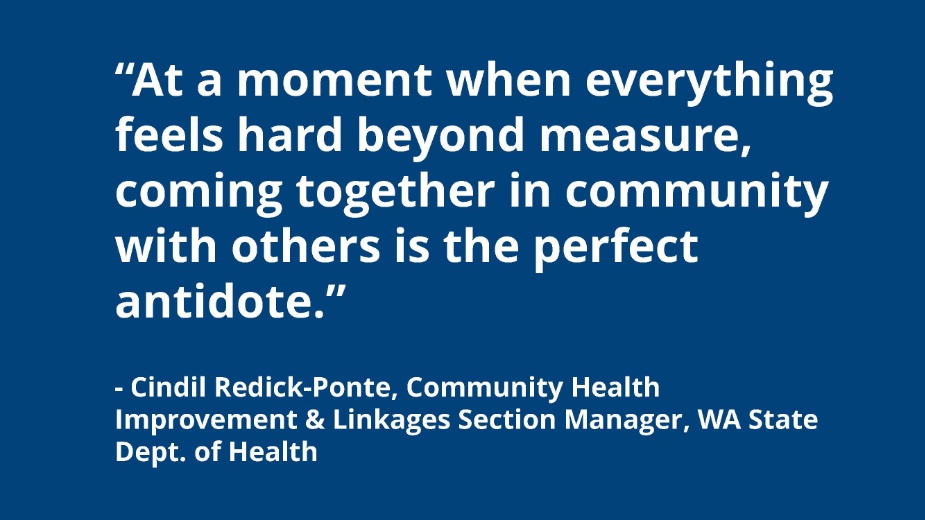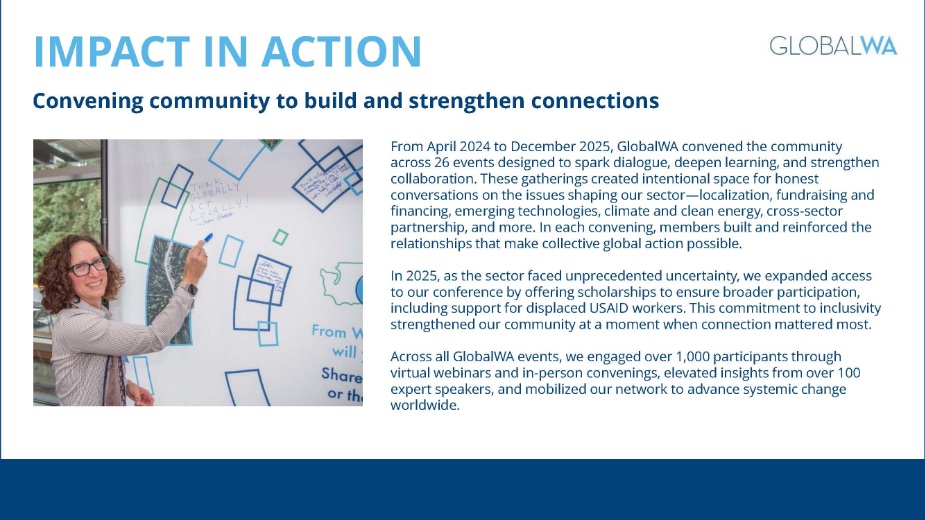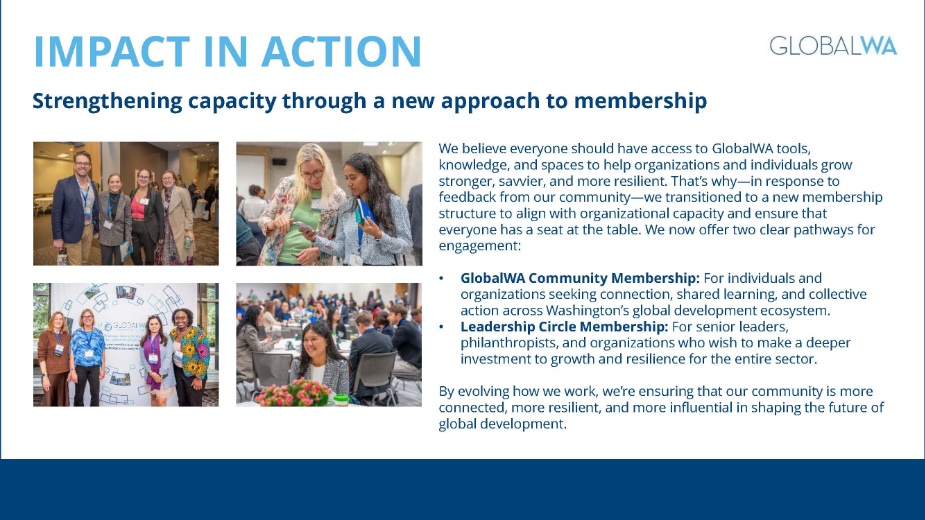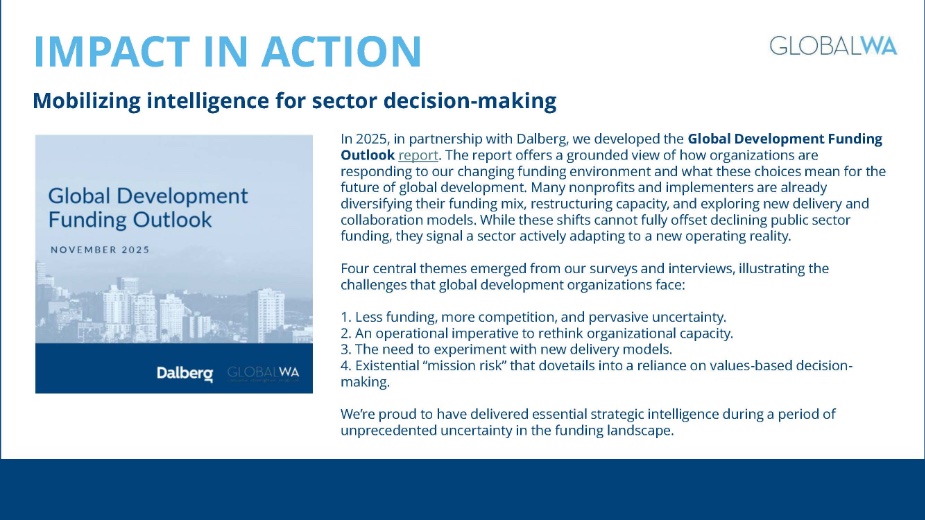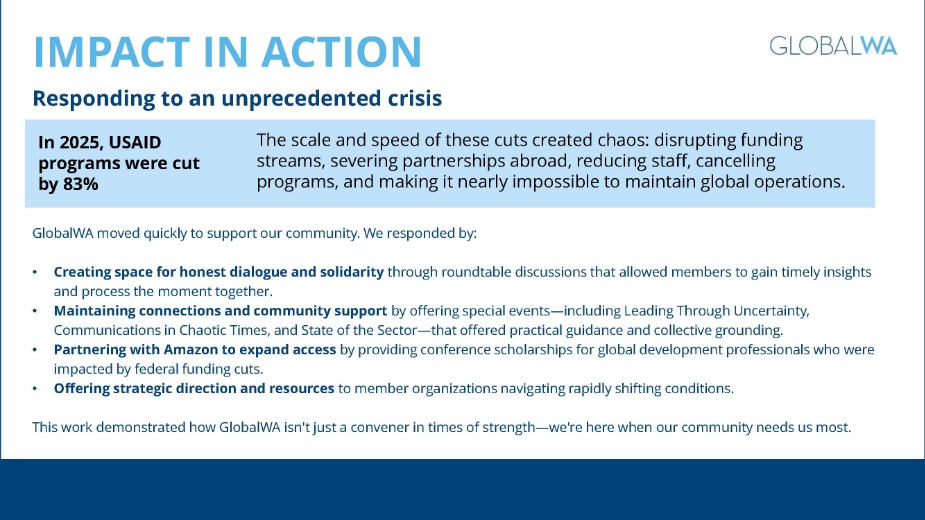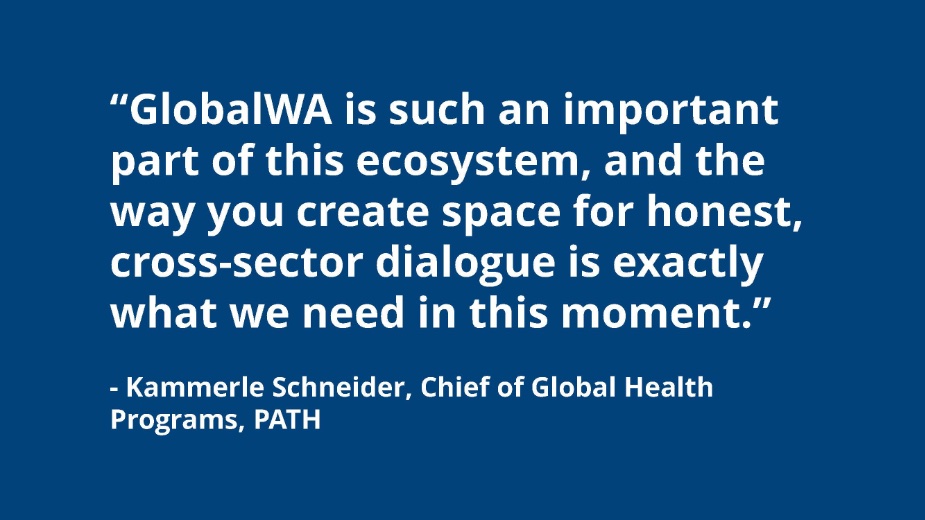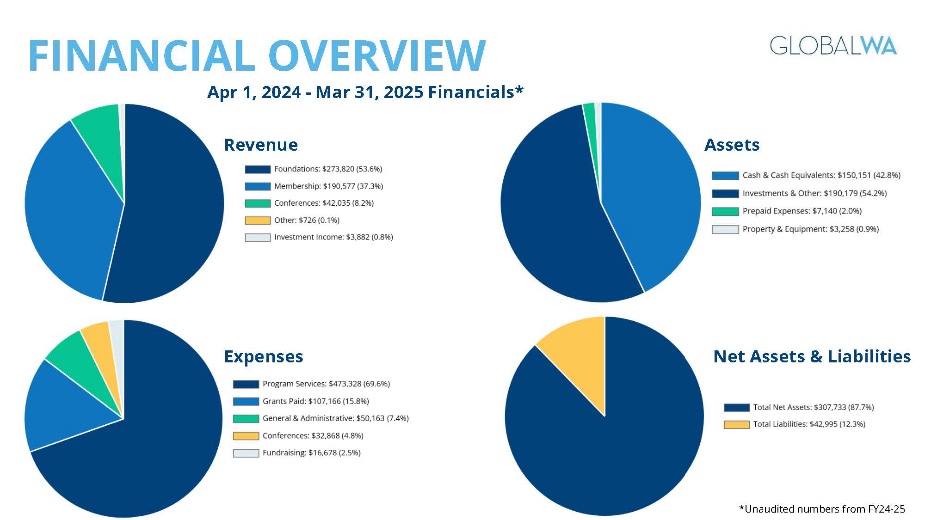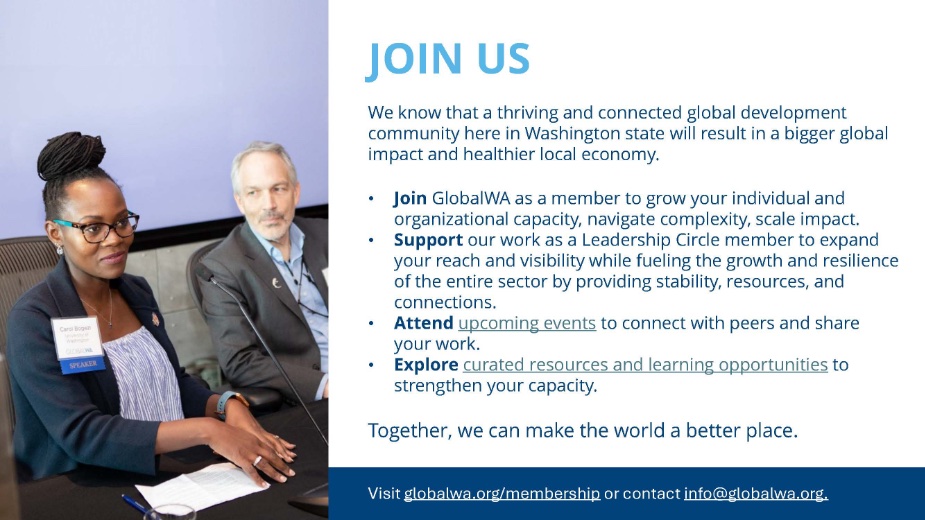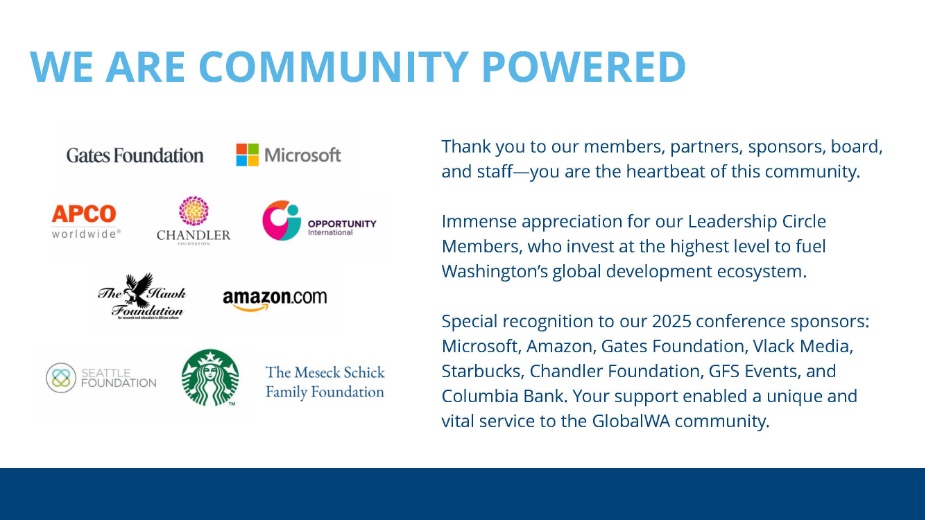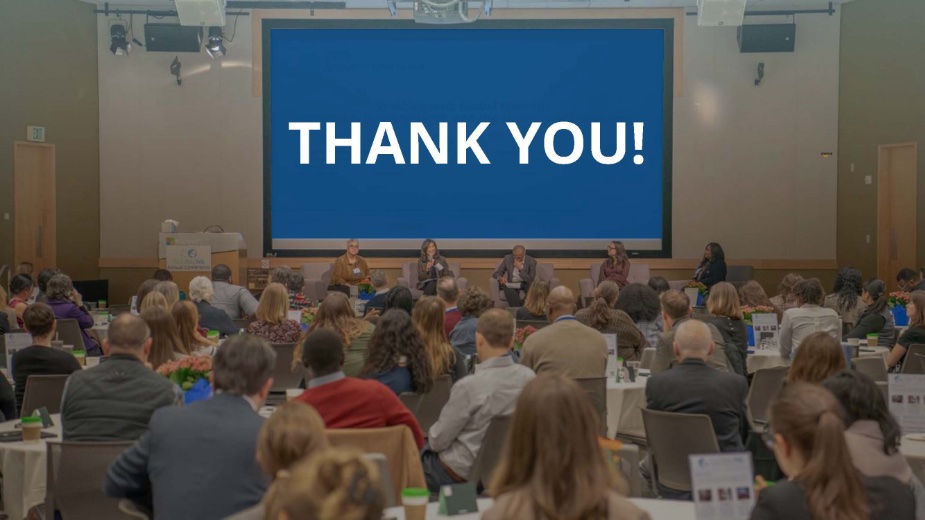From Our Blog
An Important Update about GlobalWA’s Future
Dear GlobalWA Community,
I’m writing to share some difficult news about GlobalWA’s future. After careful consideration, the GlobalWA Board has decided to close the organization. Over the next five months, we will thoughtfully wind down our work with operations concluding on June 30, 2026. We know this news may be painful, surprising, or unsettling, and we are deeply aware of what GlobalWA has meant to so many of you.
This decision was made with deep sadness and only after a thorough analysis of the sector landscape, funding environment, and our operating model. While saying goodbye is difficult, we believe the most responsible path forward is to close now, when we can still honor our commitments, serve our community, and preserve our legacy.
Why Now
The global development sector is experiencing profound and lasting disruption. Significant cuts to USAID funding, alongside broader shifts in other philanthropic priorities, have reverberated across our entire ecosystem. These changes have constrained organizations’ ability to sustain their own operations, let alone meaningfully invest in networks and capacity building. These long-term challenges facing our sector, and especially support and membership organizations like ours, have made it increasingly difficult to imagine a sustainable path forward.
We explored multiple scenarios and potential partnerships and ultimately concluded that a planned closure best aligns with our values and serves the community we have built over the last 16 years. While we remain open to opportunities for elements of GlobalWA’s brand, programs and network to continue in new forms, we are moving forward with a clear-eyed understanding of our limited resources and the reality that a more supportive funding environment may not emerge for some time.
Our Commitment to You
Between now and June 30, we will continue to operate with full transparency and purpose. All programming and membership benefits will continue, and we will honor our commitments to provide events, resources, and opportunities to learn, connect, and mobilize.
Throughout this transition, we will share regular updates about timelines, decisions, and ways for you to stay informed and connected. We are also planning a member celebration event in early June to honor the contributions, achievements, and spirit of this community. Details will be shared soon, and we hope you will join us in marking this milestone together. If you have questions about programming, ideas for potential connections to continue programs, or feedback you’d like to share during this transition, please reach out to us at info@globalwa.org. More information, including an FAQ, is available on our website at globalwa.org/globalwa-closure.
The work that GlobalWA has championed—fostering connection, strengthening capacity and driving collective action—remains critical to our sector. By closing intentionally, we aim to preserve the knowledge, relationships and resources that will allow this work to continue in new forms.
On behalf of the GlobalWA team and Board, I want to thank each of you for your partnership, leadership and dedication over the years. We are incredibly proud of what we’ve built together, and your support, ideas, and collaboration have shaped this community in countless ways. While this chapter is ending, I am confident that the impact of our collective efforts will continue to be felt for years to come.
Recent Blog Posts
- How Nonprofits Are Reimagining AI — Reflections from the 2025 Global Washington Annual Conference
- This Is What Mobilizing Looks Like: 2025 Conference Recap
- A New Way to Connect, Learn, and Lead with GlobalWA
- Introducing Our Wave 2.0: Built With—and For—Survivors
- The CEO of Save the Children U.S. on Navigating a Sudden Funding Crisis

